Chapter 7 bankruptcy is the most common type of bankruptcy filed by consumers. In fact, in Florida, 72% of all bankruptcy filings in 2021 were for Chapter 7.
Financial challenges can happen to anyone. If you are struggling to pay off debts, you might be wondering whether filing for Chapter 7 bankruptcy is the best solution. Before you decide to declare bankruptcy, however, it is important to know more about what it can and can’t do, as well as its advantages and disadvantages. Read on to learn more about it.
What Does Chapter 7 Bankruptcy Do?
Chapter 7 is often referred to as “liquidation bankruptcy” because it allows individuals to discharge their dischargeable debts through liquidation of their non-exempt assets. A trustee appointed by the court oversees the sale, and pays the net proceeds to your creditors after deducting costs of administration.
Some types of assets are exempt from liquidation in bankruptcy. In a Chapter 7 filed in Florida, Florida’s exemption laws allow its residents to claim a “homestead exemption.” This exemption usually permits residents to exempt an unlimited amount of equity in their primary residence, allowing them to keep their homes. However, the homestead exemption can be limited or disallowed in certain circumstances.
If you sold non-exempt assets within 10 years of filing bankruptcy to protect them from your creditors and used the proceeds to buy your home, your exemption can be denied. Or, if you acquired your home within 1,215 days of the bankruptcy filing your exemption can be limited to protecting equity of $170,350, or $340,700 for a married couple, even if you had no intent to shield assets from creditor. This limitation does not apply, however, if you bought your home with funds from the sale of your previous home. There are also size and use limitations. If your home is located within city limits, the exemption is limited to a ½ acre and it applies only to the portion of the property you use as your home. Outside city limits, the size limit is 160 acres and there is no use limitation.
Other types of property that are exempt from liquidation include:
- Property owned jointly with your spouse if your spouse is not filing bankruptcy and you and your spouse don’t have a joint debt owed to an unsecured creditor.
- $1,000 of personal property (anything that is not real property) if you benefit from a homestead exemption, or $4,000 if you don’t benefit from a homestead exemption.
- Up to $1,000 equity in a single motor vehicle. Note that a motor vehicle is personal property, so you can use the personal property exemption described above to exempt vehicle equity.
- Most retirement, education, and health savings accounts.
- Earnings of a head of family deposited in a bank (and 75% of the earnings of a non-head of family) within six months of filing for bankruptcy.
- Social Security benefits
- Federal Earned Income Tax Credits
- Health aids
The list of exemptions you can claim in Florida is long, and there might be more exemptions you are qualified for. An attorney with experience in laws governing bankruptcy, specifically chapter 7 in Florida, will be able to guide you through the process and answer any questions you may have.

Eligibility for Bankruptcy (Chapter 7) in Florida
Not everyone is eligible for Chapter 7 Bankruptcy relief.
The two main criteria you need to satisfy are:
- Household income below Florida’s median income if your debt is not mostly business debt
- You cannot have received a Chapter 7 discharge in the past 8 years or a Chapter 13 discharge in the past 6 years
If your debt is mostly non-business debt and your household income exceeds Florida’s median income, you may still qualify for Chapter 7 relief if you pass the “means test.” You pass the means test if your monthly disposable income as defined in the test is not enough to pay 25% of your unsecured debts. If you don’t pass the means test, you may still qualify for relief in Chapter 13.
The Pros and Cons of Chapter 7 Bankruptcy
Filing for Chapter 7 bankruptcy is not for everyone. Read its pros and cons below to see whether it’s right for you.
Pros
- A good fit for people who have not sold or transferred assets to friends or family members or repaid debts to friends or family members
- Fast processing
- Lower attorney’s fees
Cons
- Not a good fit for people with non-exempt assets
- Not a good fit for people who have sold or transferred assets to friends or family members or repaid debts to friends or family members
- Trustee is very aggressive
- Doesn’t discharge equitable distribution debts arising from divorce
How to File for Bankruptcy in Florida?
Filing for Chapter 7 bankruptcy in Florida is a complicated process that requires experienced and thoughtful preparation and skilled execution. It’s best to get help from an experienced bankruptcy lawyer.
Learn Whether Chapter 7 is the Best Option for You
Backed by more than 30 years of Mr. Schwitalla’s experience, the Bankruptcy Law Offices of James Schwitalla, P.A., is dedicated to helping clients find a way out of debt and obtain start fresh. We carefully assess each client’s unique financial situation, explain their options, and answer their questions to help them decide whether a Chapter 7 bankruptcy is right for them.
Contact us today to schedule a free consultation so we can explore your options.
